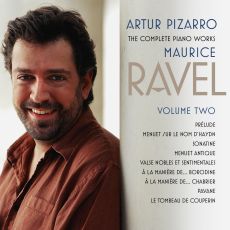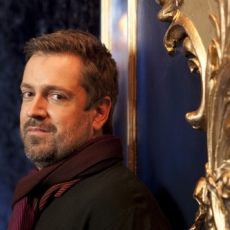Maurice Ravel Volume Two - Artur Pizarro - BBC Online
There is a popular children's tale about a necklace of raindrops that I think would have appealed to Maurice Ravel. When I imagine the composer, I picture the tiny Frenchman alone, immaculately suited, head full of his beloved fairytales, winding up his collection of mechanical toys. Whilst this is an undeniably whimsical thought, its inspiration comes from his music, the crystalline notes placed inside antique forms with a near-fanatical delicacy and precision, like a necklace of raindrops. Stravinsky once described Ravel as, ''the most perfect of Swiss clockmakers'' and, whilst we can debate the Russian's intended meaning until we're blue in the face, I doubt he was referring to Ravel's engineering father or his tenuous connections with the homeland of Toblerone. More likely is that he recognised a master musical technician who married form with beauty to often dazzling effect. Analogies over, the reason why I'm at pains to convey all these images is because they sum up for me how Ravel's music should sound - like magical musical filigree - and my delight at hearing Artur Pizarro achieve just such an effect.
This disc is Pizarro's second and final volume of Ravel's complete works for piano, and includes the famous Pavane pour une infante défunte, plus Le tombeau de Couperin and the Menuet Antique. Keeping them company are the Prélude, the Menuet sur le nom de Haydn, the Sonatine, and the pieces written ''in the manner of'' Borodin and Chabrier. Pizarro takes the music's virtuosity in his stride, but the real triumph of this disc is the clarity, gentility, delicacy and precision with which each perfectly-couched phrase is imbued. The tone is quietly thoughtful rather than heart-on-sleeve; he captures the music's special quality of being wrapped in an otherworldliness that borders, but never succumbs to, aloofness. The pedal is employed to great affect for Le Tombeau de Couperin's smoothly rippling ''Prélude'', but Pizarro knows when less is more, engaging it only sparingly for passages such as the opening theme of the same work's ''Menuet''. This is a deeply pleasurable disc, and one I believe Ravel would have approved of.

